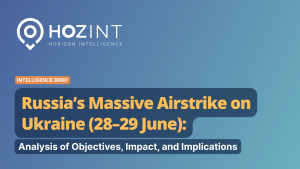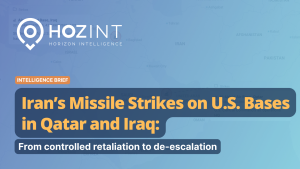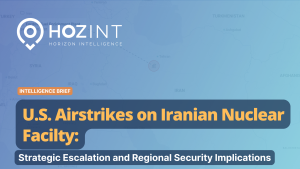On December 13, the Council of the European Union (EU) adopted restrictive measures against the Wagner Security Group, a Russia-based unincorporated private military company. The Council reported that Wagner operatives have been involved in conflict zones around the world to “fuel violence, loot natural resources and intimidate civilians”. The group is currently engaged alongside the Central African Armed Forces, known as FACA, to fight rebel forces opposed to the government of President Faustin-Archange Touadéra.
Analysis
Several stakeholders have been engaged in the Central African Republic (CAR) since the civil war of 2013. The UN had sent 15,000 UN peacekeeping troops, Minusca, and the United States and France had deployed their own forces. Their efforts led to the peace agreement in February 2019 between the government and 14 non-state armed groups. However, the agreement fell through as several armed groups were not involved in the process and 6 of the signatories left and created the Coalition des Patriotes pour le Changement in December 2020. These failures reinforced both the government and the public opinion’s view that Russia and Kremlin-linked Wagner Group could be a more efficient alternative to the European and American leaders who gradually pulled out of the conflict.
The Kremlin had a lot to gain from such intervention as it enabled President Putin to fulfil clear expansionary ambitions, gain exploitation rights over its mineral-rich soil and diamond mines, and showcase its arms industry to the war-torn region. In addition, the widespread discontent towards France’s colonial past and its counterterrorism missions in the Sahel area facilitated the acceptance of Russian soldiers on the ground.
While the coalition inflicted severe losses on rebels groups, many parts of the country are still not under government control and the humanitarian situation is critical. Russia’s influence is rising with Touadéra now surrounded with Russian “advisors” advising him on security and politics, and mining sites being controlled by the Wagner Group. President Touadéra finds himself in between two sides as the EU is taking a stricter stance and announced that the suspension of the military training of FACA soldiers as most end up operating under the command or supervision of Moscow’s paramilitary units.
Yet, it seems that public opinion has grown tired of attempts at a peace process, and believes that Russia’s help is necessary to defeat the rebels. Ultimately, it is unlikely that the set of measures against the Wagner Group will alter Putin’s foothold in Africa. On the contrary, the military achievements showcased in CAR convinced other neighbours to invest in the security group. This has led Mali to hire 500 Wagner operatives in exchange for USD 10 million per month according to Western authorities. The operation has once again been condemned by the US, Germany and France and 13 other countries on December 23 who pointed out yet another provocation by President Putin in the midst of tensions ever-increasing at the Ukrainian border.
Forecast
The Wagner Group achieved short-term goals that the newly elected Touadéra government desperately needed. However, this came at the expense of humanitarian aid and stability, with many civilians – particularly Muslim and Fulani ethnic minorities – bearing the brunt of arbitrary human rights abuses by the Russians. The situation in CAR has led to tensions within the country and the international community, and it is unclear whether Russia’s involvement will eventually backfire on Touadéra in the form of radicalization and further civil unrest. In this scenario, it is possible that increasing Russian influence could even lead to a one-party state, as the political climate is increasingly similar to that of the François Bozizé regime, where the political opposition and civilians were too afraid to speak out.
On a larger scale, the sanctions imposed by the EU could be a way to deter other countries for now tempted to hire the notorious group. Nonetheless, Mali’s defiance illustrates how Russia is slowly filling the military void left by Western powers in the region, at the cost of the international community withdrawing desperately needed financial and humanitarian aid.
By Annabelle Gouache, Risk Intelligence Analyst at Hozint – Horizon Intelligence.




